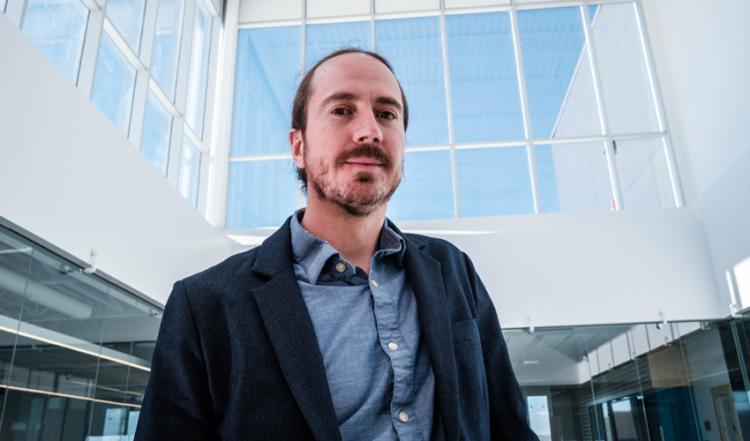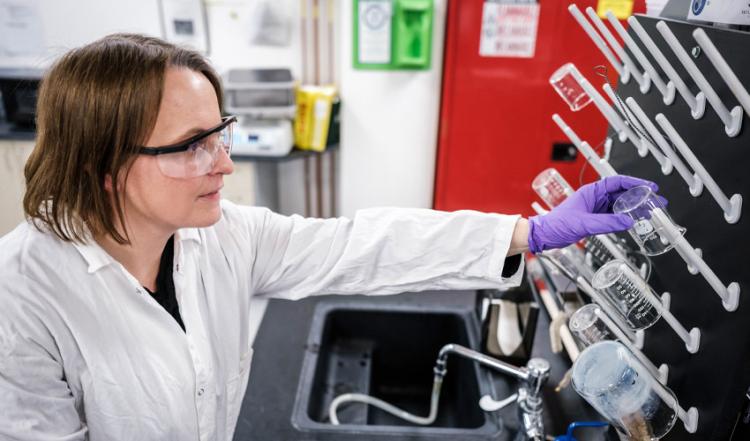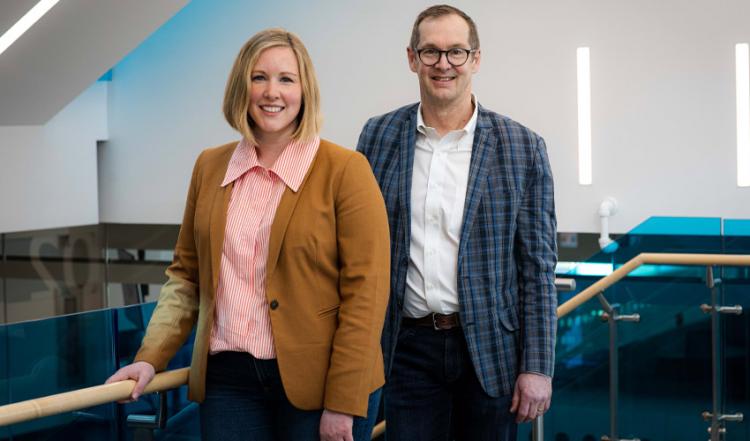Mount Royal University is focused on innovation through research, and received a boost in this area from its first three Canada Foundation for Innovation Awards followed by matching grants from the Government of Alberta.
The Canada Foundation for Innovation (CFI), a non-profit corporation that invests in research infrastructure at Canadian universities, colleges, research hospitals and non-profit research institutions, awarded $567,000 to MRU projects researching foot and ankle injuries; wildfire forensics and community podcasting.
Alberta's Research Capacity Program helps Alberta's post-secondary institutions get the small equipment and large research infrastructure they need to attract, retain and develop researchers in the province. Matching grants from this program brings the funding to more than $1.1 million.
"We are thrilled to have received these grants as they benefit and highlight three distinct and diverse research projects at MRU that will benefit our wider community. These are MRU's first CFI awards and indicate our institutional capacity for research and scholarship. As our research footprint continues to grow, we are grateful to both of these funding agencies for their support," says Dr. Michael Quinn, PhD, vice-provost and associate vice-president, academic, at Mount Royal.
The MRU projects benefiting from this funding are:
The Unstable Ankle: Uncovering the mechanisms of foot-ankle stability
Dr. Michael Asmussen, PhD, assistant professor in biology
Total project cost: $799,233
Amount from the CFI: $319,693
Matching funds from Research Capacity Program: $319,693

The foot and ankle are sites of frequent musculoskeletal injuries that affect individuals across the entire lifespan. An injury to these structures often results in higher risk of re-injury and instability, which could lead to secondary problems such as balance issues, decreased mobility, or bone fractures/concussions from associative falls.
To prevent an injury or recover from it, health-care experts attempt to improve joint stability. The main purpose of Asmussen's research is to quantify neuromuscular control of foot and ankle joint stability during different types of human locomotion. Using a combination of musculoskeletal computer models and experimentation of human movement, Asmussen seeks to understand how muscles and passive structures respond to brief, rapid movements of the foot and ankle similar to what a person may experience while moving in a natural environment (i.e., stepping on rock). The neuromuscular response to these foot and ankle disturbances will first be tested statically (for example, with no movement), and while individuals perform different dynamic tasks such as balancing, cycling, walking and running. This series of studies will uncover the underlying mechanisms of foot and ankle joint control.
"The results of this research will inform clinicians on how to develop personalized treatment approaches to improve foot and ankle stability, and thus prevent injury, re-injury, falls and/or improve mobility," Asmussen says.
Forensics of Wildfire Debris using GCxGC TOF-MS
Dr. Gwen O'Sullivan, PhD, associate professor in environmental science
Total project cost: $546,190
Amount from the CFI: $217,478
Matching funds from Research Capacity Program: $217,478

The frequency, severity and damages associated with wildfires are increasing in Canada, resulting in significant societal costs. Although wildfires can be caused by natural phenomena, such as lightning strikes, a large proportion reported in Alberta each year originate from human activity. Investigating the origin and cause of wildfires is important to help understand the direct role of humans and the influence of climate change to develop necessary and appropriate management strategies.
Currently, O'Sullivan and Dr. Court Sandau, PhD, work with stakeholders and end-users to drive improvements in ignitable liquid residue analysis, and data interpretation and decision-making for arson investigation nationally and internationally. This equipment and renovated laboratory space will enable them to establish a world-class research centre, unique in Western Canada, where innovative techniques for wildfire debris analysis and environmental forensics will be developed.
"With a focus on fundamental discoveries and addressing knowledge gaps within environmental and criminal analysis, this research centre will contribute to our understanding of wildfire initiation and propagation, enhance investigative processes, increase prosecutions and allocation of liability, and continue improvements in policy and wildfire management," O'Sullivan says.
Knowledge will also be relevant to other areas of criminal and environmental forensics, and a broad range of industries and sectors (food, agriculture and energy)
Digital Dialogues: Podcasting for Knowledge Mobilization and Community Building
Meg Wilcox, assistant professor in journalism and digital media, and Dr. Brad Clark, PhD, associate professor in broadcast media studies
Total project cost: $74,939
Amount from the CFI: $29,939
Matching funds from the Research Capacity Program: $29,939

Podcasting, while relatively new and increasingly popular, is a technology that academics have only begun to address questions arising around the democratization of media production.
By their nature, podcasts tap into audiences at a level of intimacy not common in other media. The opportunity to connect is unparalleled, when properly produced. At a time when scholars struggle to explain their research to the public, podcasting offers a way to engage that is inherently accessible. For marginalized groups, whose voices are underrepresented in mainstream media, podcasting is a way to connect with audiences both inside and outside their communities.
By building a podcasting studio, Meg Wilcox and Dr. Brad Clark plan to create scholarly podcasts with both researchers and community members. Within this space, the Community Podcast Initiative will develop, produce and promote podcasting by fostering innovative audio storytelling as a way to amplify underrepresented voices, including Indigenous community members, racialized Canadians, rural residents and multicultural and multi-ethnic groups in urban centres. In a brand-new student space set to open this spring, the project aims to collaborate with community groups to share their experiences while exploring new and more inclusive ways to tell audio stories.
This studio would be the first of its kind at a Canadian university, with a few comparable spaces found at colleges in the United States.
"The ultimate goal is to advance the interests of people at both ends of mass communication in Canada the people with important and meaningful stories to tell, and the audiences who so often lack clear, contextual authentic accounts of important issues and events," Wilcox says.









